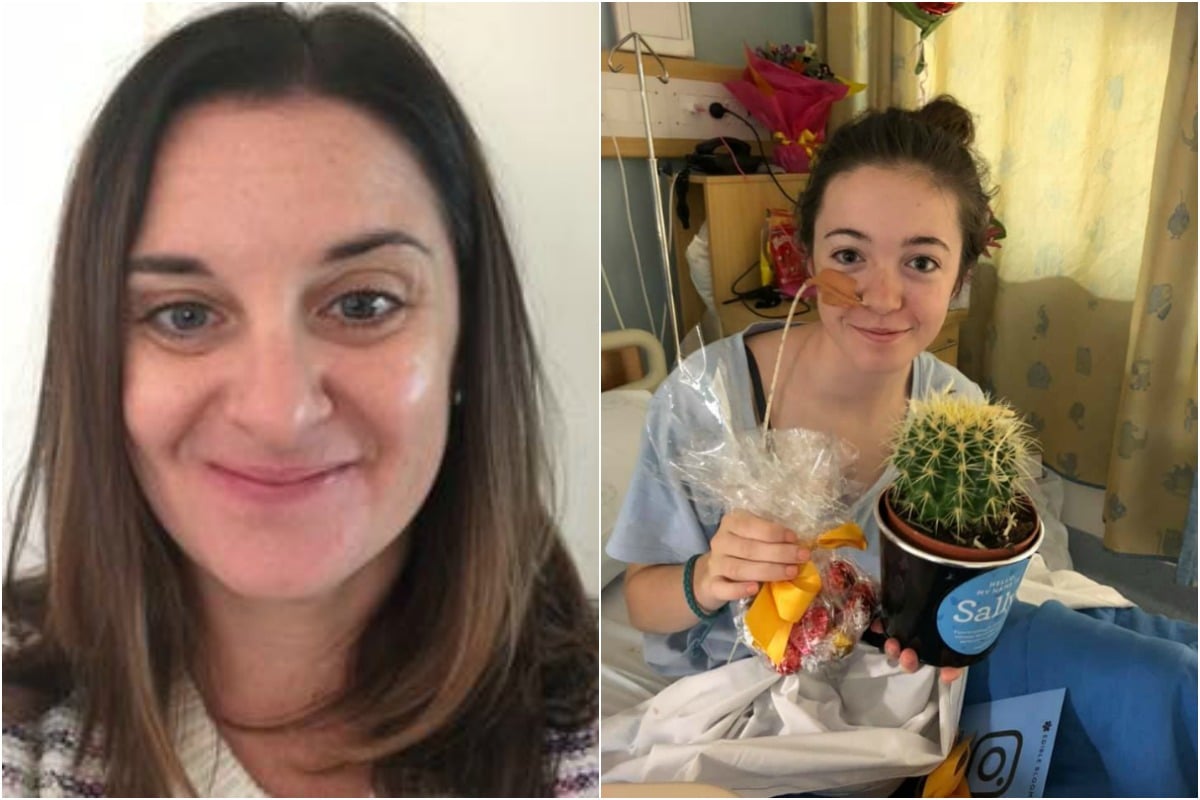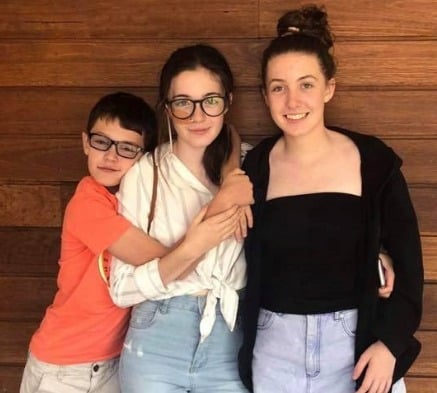
Isabelle Smith, 15, started fainting at school in May 2018.
It started sporadically, but over the course of six weeks it grew in frequency until she was fainting every single day.
Sometimes she’d be unconscious for three hours at a time. Sometimes she’d faint with her eyes open. It was her only symptom.
“It wasn’t from a hot day, she’s not running around playing sport. She’s literally sitting in the classroom doing work and would blackout,” Isabelle’s mother Kate Smith told Mamamia.
Learn more about FND below. Post continues after video.
A few weeks in at yet another hospital appointment, Kate and Isabelle went to leave after being told yet again “there’s nothing wrong” when Isabelle exclaimed “I can’t feel my left foot,” as she hopped off the bed.
It was then discovered she couldn’t touch her nose with her left hand. Doctors immediately thought she had suffered a stroke and sent her via ambulance to the larger hospital of Orange NSW, an hours drive away from Parkes, which was home.
But test after test came back negative, and she was discharged with a set of crutches and the explanation; “it might just be a pinched nerve, it’ll come back…”




Top Comments
thank you for speaking up about FND. I've been disabled by it since 2010. I'm so happy to see fndhope.org being used as a resource here too. In my journey, that was the only place that had any info for me. <3